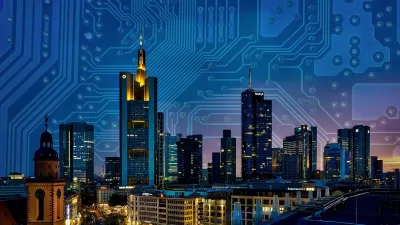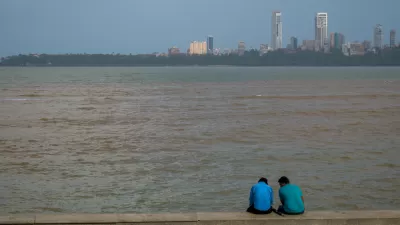In India, smart cities are being built with much fanfare and government support. However, critics rightfully worry that such models could end up excluding the very people who need its benefits the most.
From lack of infrastructure to concentrated poverty, megacities—urban areas of 10 million or more people—present significant challenges for any local government. Concerns over social inequality have also long been a fixture of the discourse around megacities, especially so in India where there are six such metropolitan areas amid a culture defined by the hierarchies of the caste system. At the moment, however, the issue of urban exclusion in India is now coalescing around that nation’s burgeoning smart city movement.
Smart cities, according to the Indian government’s website, "are those cities which have smart (intelligent) physical, social, institutional, and economic infrastructure while ensuring centrality of citizens in a sustainable environment. It is expected that such a Smart City will generate options for all residents to pursue their livelihoods and interests meaningfully and with joy." The impetus for India's smart city building is largely urbanization demographics. Currently, 31 precent of India’s population is urban. That is projected to increase to 65 percent over the next decades. India has set a goal of 100 smart cities to meet the challenge of settling its growing urban migration in decent and humane ways.
FULL STORY: Who is the Smart City For?

Planetizen Federal Action Tracker
A weekly monitor of how Trump’s orders and actions are impacting planners and planning in America.

San Francisco's School District Spent $105M To Build Affordable Housing for Teachers — And That's Just the Beginning
SFUSD joins a growing list of school districts using their land holdings to address housing affordability challenges faced by their own employees.

The Tiny, Adorable $7,000 Car Turning Japan Onto EVs
The single seat Mibot charges from a regular plug as quickly as an iPad, and is about half the price of an average EV.

Seattle's Plan for Adopting Driverless Cars
Equity, safety, accessibility and affordability are front of mind as the city prepares for robotaxis and other autonomous vehicles.

As Trump Phases Out FEMA, Is It Time to Flee the Floodplains?
With less federal funding available for disaster relief efforts, the need to relocate at-risk communities is more urgent than ever.

With Protected Lanes, 460% More People Commute by Bike
For those needing more ammo, more data proving what we already knew is here.
Urban Design for Planners 1: Software Tools
This six-course series explores essential urban design concepts using open source software and equips planners with the tools they need to participate fully in the urban design process.
Planning for Universal Design
Learn the tools for implementing Universal Design in planning regulations.
Smith Gee Studio
City of Charlotte
City of Camden Redevelopment Agency
City of Astoria
Transportation Research & Education Center (TREC) at Portland State University
US High Speed Rail Association
City of Camden Redevelopment Agency
Municipality of Princeton (NJ)





























